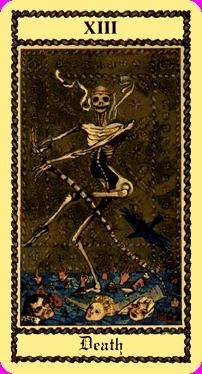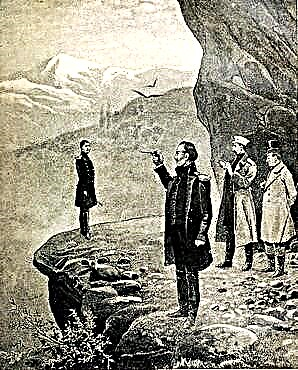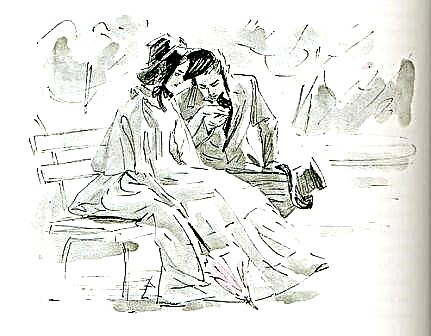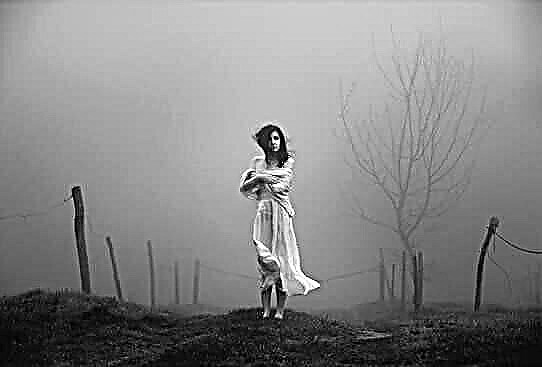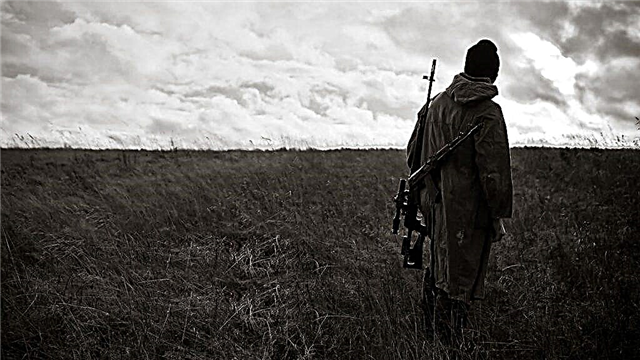M. Lermontov often reflected on justice, honor and fidelity on a national scale. But under the king there was censorship, so the author cheated and expressed criticism of the existing system in the historical narrative. So the “Song about the Merchant Kalashnikov” is an innovative work in which the poet skillfully hides the true meaning behind historical details. But first things first.
History of creation
After graduating from the Guards School, the writer goes to Tsarskoye Selo. There he begins work on a poem. It was then that Lermontov formed his own point of view about life in Russia. He recognizes the indisputable dignity of his people, and blames the authorities for his troubles, which are not able to fairly judge. By that time, the poet himself had suffered from the heavy hand of the tsar: he was exiled for a poem dedicated to the death of Pushkin.
Initially, the poem "A Song about the Merchant Kalashnikov" was published anonymously in 1838, in "Literary Additions to" The Russian Disabled ". In 1840, the work was included in the collection "Poems of M. Lermontov."
Genre and direction
The book belongs to the genre of romantic national historical poem.
The closeness of the work to folklore legends (“good fellow”, “damp earth”, etc.) indicates that it is written in the direction of romanticism. Other components of this literary movement are also obvious: the conflict of the individual with society and the tragic ending.
The meaning of the name
The poem is stylized under the Russian epic, or rather, under the ancient genre of "legend". The author plunges us into the atmosphere of antiquity from the first line, giving the name an ancient flavor. In the Middle Ages, it was customary to disclose the contents of the book in the headings, no one even thought to intrigue the reader.
Lermontov gave just such a name to the work so that the public immediately understood a hint of its essence and content, plunging into the tradition of ancient times.
Essence
Actions take place during the reign of Ivan IV. A young merchant named Stepan Paramonovich Kalashnikov in an honest fist fight kills his offender - the Tsar’s oprichnik, Kiribeevich, who disgraced his family. Key events of the book are reflected in brief.
This is a romantic poem where each hero is the bearer of some kind of romantic passion. Kalashnikov - honor, Kiribeevich - passion, Ivan IV - power and despotism of government. All of them are in opposition, and this struggle can be resolved only by the death of any of them. This is what the work says.
The main characters and their characteristics
- Merchant Stepan Kalashnikov. Embodies the type of a real Russian person in the poem. His personal dignity is a manifestation of the evolving moral foundations of the Russian people for centuries. It organically combines simplicity, warmth and respect for others, with true Russian heroism and nobility. Revenge for Alena Dmitrievna is not only a defense of personal honor, but also the defense of the rights of the entire Kalashnikovs. It is no accident that he convenes the brothers and asks them to take revenge on the enemy after his death. The open call that he throws to the nearest imperial oprichnik automatically sentenced him to death. Kalashnikov is aware of what the royal reward will be, but is not afraid of death. His only request is to take care of the family. Kalashnikov, despite the shameful fate, remains a hero in the memory of the people.
- Ivan groznyj. This is a dual figure in Lermontov. His greatness, the breadth of nature combine cruelty and despotism. Ivan IV is convinced that both the souls and the thoughts of his subordinates are in his power. He executed Kalashnikov only because he refused to reveal the real reason for the murder to the tsar. It is the king, whose memory is so bloody and terrible, who becomes the culprit of the monstrous injustice. He, not suspecting, gives his beloved servant permission to solicit a married lady. He does all this with a broad gesture of his hand, without thinking or taking care of the fate of his subjects. He scornfully gives vent to his chain dogs, ignoring the possible consequences.
- Kiribeevich. The personality is original, bright and strong. He is obsessed with one passion - love for Alena Dmitrievna. Unable to any compromises, he is ready for anything for this passion. The moral inferiority of Kiribeevich is largely due to his service. The peculiarity of his social position leads to the fact that his will turns into self-will, and love - into arbitrariness and violence. This crafty slave not only dishonored Alena Dmitrievna in front of the evil neighbors, but also deceived his king, hiding from him that his beloved was married in the church.
Themes and Issues
- The main theme is honor.. Kalashnikov knew what fate awaited him in the future after the battle, but he considered it his moral duty to protect the dignity of his family. He could not and did not want to live in shame and let the royal servants abuse his wife.
- Lermontov also raises the problem of permissiveness of power. Kiribeevich was an oprichnik under the tsar, therefore, nothing will happen to him for the harassment of someone else’s wife, because the tsar will believe in his innocence, and what does he care about the fate of some merchant? He prefers to amuse his warrior and watch the fight, having fun with a bloody spectacle.
- Love theme. People do not see boundaries, do not see any barriers due to love and passion. So Kiribeevich, despite the fact that Alena Dmitrievna was married, began to show her signs of attention, and subsequently completely crossed the line. The other side of love is the behavior of the spouse, who cares about the reputation of the family. He sacrifices himself, but before his death he provides his wife with everything necessary for a good life. And the heroine herself is faithful to Stepan, she loves him with all her heart.
- Moral issues expressed in the behavior of the king. He rules not wisely, allowing arbitrary desires to prevail over the interests of the state and people. Why execute the strong man who defeated his best fighter? It is clearly useful if a serious opponent threatens Russian land. Such people are the backbone of the country. But the ruler does not care, he puts his petty interests above human destinies and even the fatherland itself.
- The theme of freedom. Stepan Kalashnikov is a free person who does not give up even under royal oppression. Despite the slavish position of people in Russia, he openly rebels against everyone, deciding to defend his right to the inviolability and honor of the family.
- The problem of injustice. Ivan IV, announcing the rules of the battle, he himself does not follow them when he executes Kalashnikov, because he is the lord, and he is apparently allowed to do so.
The main idea
The main idea is the need to protect honor and dignity in any situation, and here it does not play a role, at the cost of one’s life or in any other way. You need to fight for your freedom, otherwise there will always be someone who can take it away. Tyranny always finds support in slavery, and if people begin to rebel against despotism, then it will fall under the blows of independence. This appeal directly related to the era of Lermontov himself: he urges fellow citizens to stop tolerating the arbitrariness of the authorities and oppose the autocracy as fearlessly as the protagonist of the poem.
The meaning of Kalashnikov’s act is understandable: he understands that his inaction will be perceived as surrender. The enemy will not back down, and complaints to the king are unlikely to change anything. He cannot put his family at risk and decides that he must make a sacrifice in order to get out of the situation with honor, providing his wife and children. In fact, he had no other choice. But Lermontov was critical of his contemporaries and thought that they needed a moral lesson from the past. That is how, and not otherwise, to respond to arbitrariness - such is the author’s position. The rebellion of the individual against the system is the way out of the vicious circle of tyranny.
What does it teach?
The moral of the poem is this: even if everything in life goes against you, you need to defend your point of view and seek justice, otherwise you will be deprived of everything that is dear to your heart.
The writer also speaks of love and fidelity to his family and their protection - no matter what it will be, spiritual or physical, you need to protect your family from harm in time.
The conclusion is simple: the world needs justice, but only certain daredevils can achieve it, so do not wait for a nation-wide justice that came from nowhere. It is necessary to take a just cause into our own hands, without it there will be a mess in our world.



